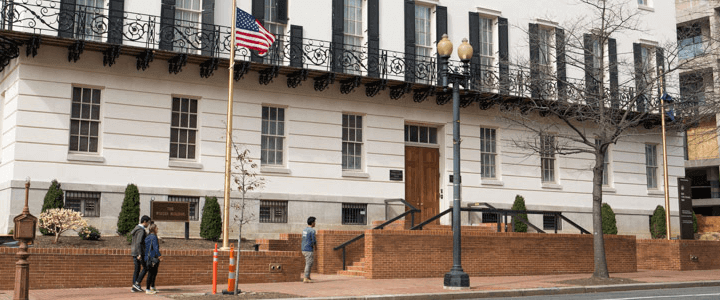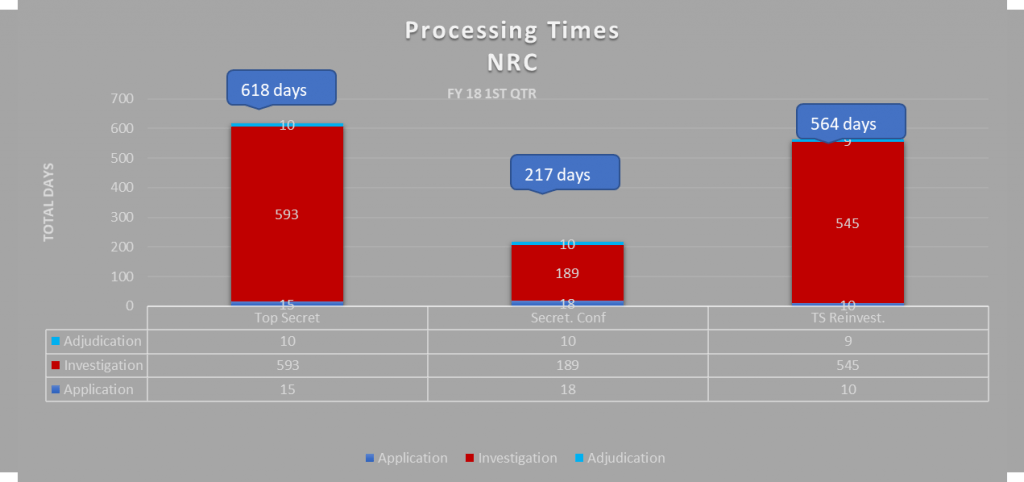The Nuclear Regulatory Commission (NRC) has an important job – protecting and maintaining nuclear security and U.S. nuclear reactors. And as a small agency, the ability to quickly hire for available positions is key. But like all government agencies, the NRC is facing security clearance processing delays.
| Application | Investigation | Adjudication | Total | |
| All | 18 | 236 | 11 | 265 |
| Top Secret | 15 | 593 | 10 | 618 |
| Secret. Conf | 18 | 189 | 10 | 217 |
| TS Reinvest. | 10 | 545 | 9 | 564 |
The total time for processing a Top Secret security clearance is currently at 618 days, a Secret/confidential clearance is 217 days, and Top Secret reinvestigations are taking 564 days. These numbers reflect only the contract workforce, and only the top 90 percent of all clearance investigations. That means some applicants may have security clearance processing times significantly beyond the average.
If slow security clearance processing times were a contest, the NRC would currently be the winner. But these numbers lack some context – compared to other agencies regularly reporting their security clearance processing times, the NRC sponsors the lowest number of clearances. The figures for the first quarter of 2018 include only 14 applicants for a Top Secret security clearance.
While a small number of people are affected by the NRC delays, because of the small size of the agency and the contractor workforce, each of those positions represents a mission-critical function that remains unfilled while an applicant waits almost two years for a final determination.





